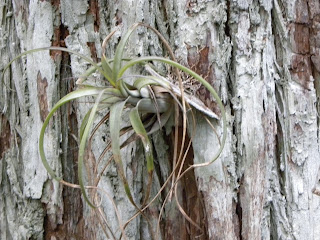Historic Cottage & Matanzas Pass Preserve
Estero Island Cottage and Matanzas Pass is a beautiful look back into what Fort Myers Beach "used to be". The cottages, built in 1921, are still standing, and well maintained. The boardwalk leading to Matanzas Pass was also very well maintained. The only part I found strange was the unnaturally yellowed water and the severe mosquitoes.
I grew up in Bradenton, Florida, where there is seemingly constant construction and development. The road that once held only my school and a large field of cows has now turned into several mall plazas and apartment complexes. Five new golf courses have been opened. Several new gated subdivisions have been created. The road outside my house which was once a narrow two lane now spans four to six lanes wide in some places. Quality of life has increased, but at the cost of removing a lot of the trees and natural landscape that covered it when I was younger.
If a developer offered me 300% of market value for my childhood home, I would have to accept it. I'm not personally attached to any of my homes (I moved around a lot as a kid). I'd gladly reinvest the money into a newer, nicer home.
If the county offered me 80% of market value as part of a 20/20 program, I would let them buy my property. As I mentioned before, I'm not sentimental with my property, and it would help the county out, and preserve a piece of history. The 20/20 program is important to create preserves and promote environmental stewardship.
See all field trip pictures here
Conservation 20/20
Local quality of life is improved in this area because it gives people a 'preserved' area of land, whereas most of Ft. Myers Beach and surrounding areas is relatively developed. Matanzas Pass is a good place to relax and walk the nature trail.
I grew up in Bradenton, Florida, where there is seemingly constant construction and development. The road that once held only my school and a large field of cows has now turned into several mall plazas and apartment complexes. Five new golf courses have been opened. Several new gated subdivisions have been created. The road outside my house which was once a narrow two lane now spans four to six lanes wide in some places. Quality of life has increased, but at the cost of removing a lot of the trees and natural landscape that covered it when I was younger.
If a developer offered me 300% of market value for my childhood home, I would have to accept it. I'm not personally attached to any of my homes (I moved around a lot as a kid). I'd gladly reinvest the money into a newer, nicer home.
If the county offered me 80% of market value as part of a 20/20 program, I would let them buy my property. As I mentioned before, I'm not sentimental with my property, and it would help the county out, and preserve a piece of history. The 20/20 program is important to create preserves and promote environmental stewardship.
See all field trip pictures here
Conservation 20/20



























